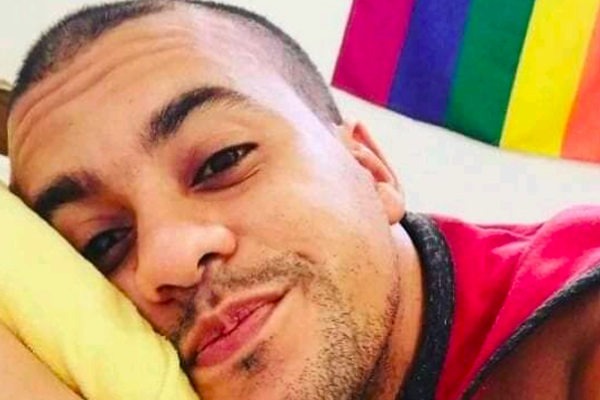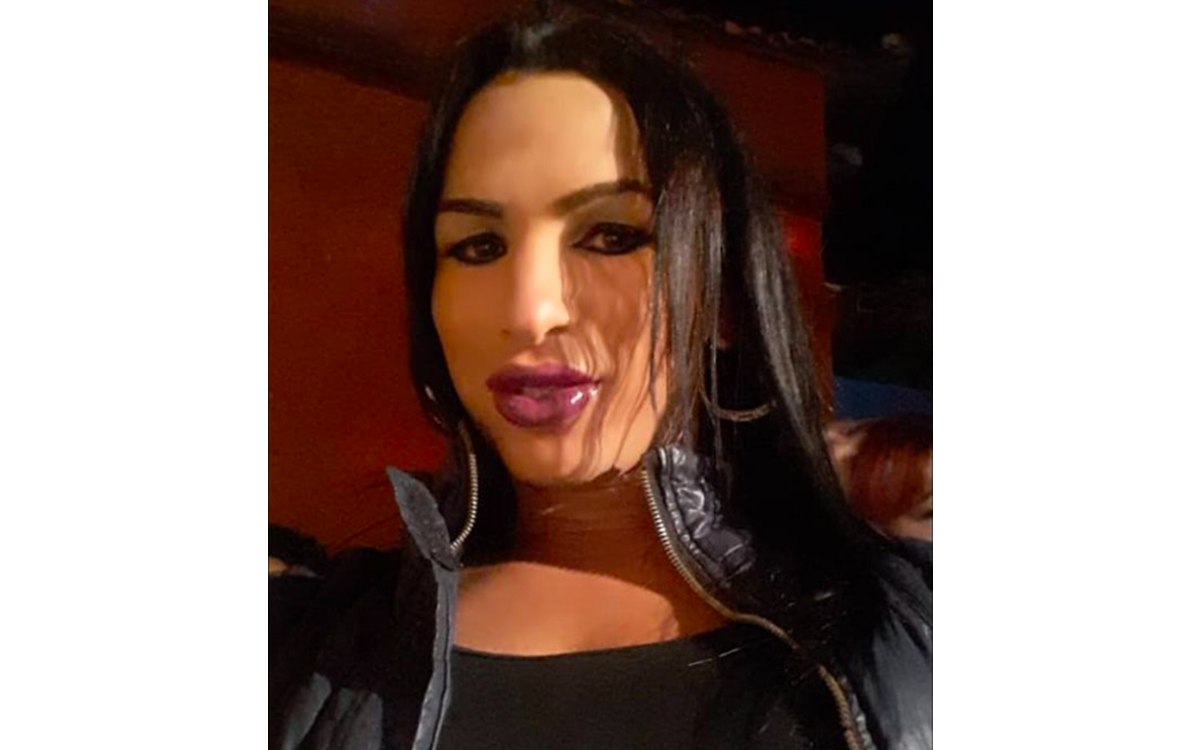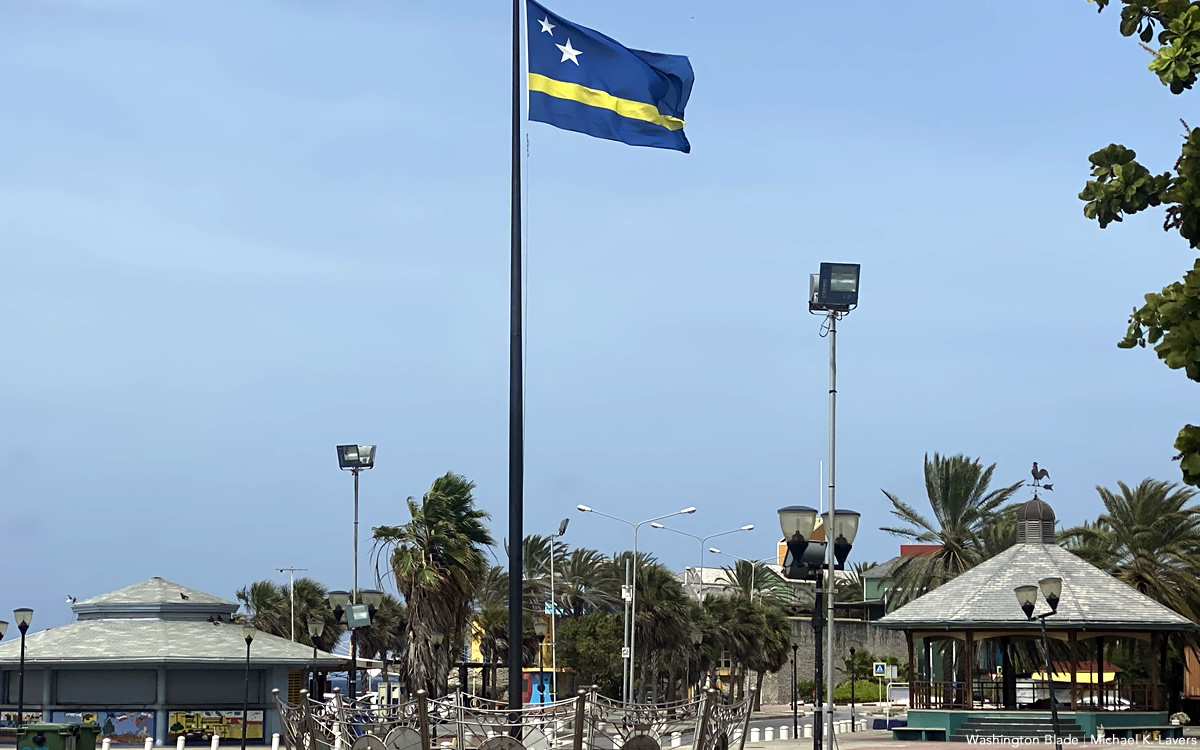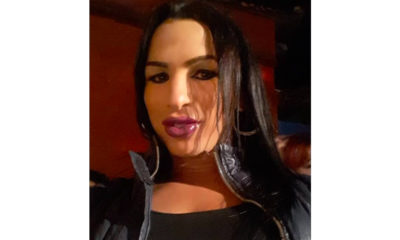Caribbean
Gay man who livestreamed anti-government protest in Cuba released from prison
Yoan de la Cruz received 6-year sentence

A gay man who received a 6-year prison sentence for live-streaming an anti-government protest in Cuba has been released.
Tremenda Nota, the Washington Blade’s media partner in Cuba, and sources on the island on Friday confirmed Yoan de la Cruz’s release from prison.
De La Cruz on July 11, 2021, used Facebook Live to livestream a protest in San Antonio de los Baños, a municipality in Artemisa province that is just west of Havana. The protest is one of dozens against the Cuban government that took place across the country on the same day.
A Havana court in March sentenced De La Cruz to six years in prison.
De La Cruz’s mother described the sentence as an “injustice” and said her son’s health deteriorated while in prison. One source in Cuba told the Blade that authorities sentenced De La Cruz to five years of house arrest after the original sentence was appealed. The Blade will provide additional details as they become available.

Trinidad and Tobago
Trinidad and Tobago recriminalizes homosexuality
Court of Appeal on March 25 overturned 2018 ruling

An appeals court in Trinidad and Tobago has recriminalized consensual same-sex sexual relations in the country.
Jason Jones, an LGBTQ activist from Trinidad and Tobago who currently lives in the U.K., in 2017 challenged Sections 13 and 16 of the country’s Sexual Offenses Act. High Court Justice Devindra Rampersad the following year found them unconstitutional.
The country’s government appealed Rampersad’s ruling.
Court of Appeal Justices Nolan Bereaux and Charmaine Pemberton overturned it on March 25. The Daily Express newspaper reported Justice Vasheist Kokaram dissented.
“As an LGBTQ+ citizen of Trinidad and Tobago, this regressive judgement has ripped up my contract as a citizen of T&T and again makes me an unapprehended criminal in the eyes of the law,” said Jones in a statement he posted to social media. “The TT Court of Appeal has effectively put a target on the back of LGBTQIA+ people and made us lower class citizens in our own country.”
Antigua and Barbuda, St. Kitts and Nevis, Barbados, and Dominica are among the countries that have decriminalized consensual same-sex sexual relations in recent years.
The Inter-American Commission on Human Rights in 2021 issued a decision that said Jamaica must repeal its colonial-era sodomy law. The Jamaican Supreme Court in 2023 ruled against a gay man who challenged it.
A judge on St. Vincent and the Grenadines’s top court last year dismissed two cases that challenged the country’s sodomy laws.
Jones in his statement said he “will be exercising my right of appeal and taking this matter to the” Privy Council, an appellate court for British territories that can also consider cases from Commonwealth countries.
King Charles III is not Trinidad and Tobago’s head of the state, but the country remains part of the Commonwealth.
“I hope justice will be done and these heinous discriminatory laws, a legacy of British colonialism, will be removed by the British courts,” said Jones.
Cuba
Transgender woman who protested against Cuban government released from prison
Brenda Díaz among hundreds arrested after July 11, 2021, demonstrations

A transgender woman with HIV who participated in an anti-government protest in Cuba in 2021 has been released from prison.
Luz Escobar, an independent Cuban journalist who lives in Madrid, on Saturday posted a picture of Brenda Díaz and her mother on her Facebook page.
“Brenda Díaz, a Cuban political prisoner from July 11, was released a few hours ago,” wrote Escobar.
Authorities arrested Díaz in Güira de Melena in Artemisa province after she participated in an anti-government protest on July 11, 2021. She is one of the hundreds of people who authorities took into custody during and after the demonstrations.
A Havana court in 2022 sentenced Díaz to 14 years in prison. She appealed her sentence, but Cuba’s People’s Supreme Court upheld it.
Escobar in her Facebook post said authorities “forced” Díaz to “be in a men’s prison, one of the tortures she suffered.” Mariela Castro, the daughter of former Cuban President Raúl Castro who directs the country’s National Center for Sexual Education, dismissed reports that Díaz suffered mistreatment in prison. A source in Cuba who spoke with the Washington Blade on Saturday said Díaz was held in a prison for people with HIV.
The Cuban government earlier this week began to release prisoners after President Joe Biden said the U.S. would move to lift its designation that the country is a state sponsor of terrorism. The Vatican helped facilitate the deal.
U.S. Sen. Marco Rubio (R-Fla.), who is Cuban American, on Wednesday criticized the deal during his confirmation hearing to become the next secretary of state. President-elect Donald Trump, whose first administration made the terrorism designation in January 2021, will take office on Monday.
Caribbean
Dutch Supreme Court rules Aruba, Curaçao must allow same-sex couples to marry
Ruling likely also applicable to St. Maarten

The Dutch Supreme Court on Friday ruled Aruba and Curaçao must extend marriage rights to same-sex couples.
The Joint Court of Justice of Aruba, Curaçao, St. Maarten and of Bonaire, St. Eustatius, and Saba in 2022 ruled in favor of marriage equality in two cases that Fundacion Orguyo Aruba and Human Rights Caribbean in Curaçao filed.
The governments of the two islands appealed the ruling.
The Joint Court of Justice of Aruba, Curaçao, St. Maarten and of Bonaire, St. Eustatius, and Saba has jurisdiction over Aruba, Curaçao, and St. Maarten —three constituent countries within the Netherlands — and Bonaire, St. Eustatius, and Saba — which are special municipalities within the kingdom.
Same-sex couples have been able to legally marry and adopt children in Bonaire, St. Eustatius, and Saba since 2012.
Aruba, Curaçao, and St. Maarten must recognize same-sex marriages from the Netherlands, Bonaire, St. Eustatius, and Saba. Aruba’s registered partnership law took effect in 2021.
“Today, we celebrate a historic victory for the dignity and rights of LGBT individuals in Curaçao and Aruba,” said Human Rights Caribbean President Janice Tjon Sien Kie on Friday in a statement.
Aruban Sen. Miguel Mansur, who is gay, on Friday described the ruling to the Washington Blade as “an amazing victory which applies to Aruba, Curaçao, and by implication St. Maarten.”
“Aruba progresses into a society with less discrimination, more tolerance, and acceptance,” he said.
Melissa Gumbs, a lesbian St. Maarten MP, told the Blade the ruling “could very well have some bearing on our situation here.”
“I’m definitely looking into it,” she said. “We’re researching it to see what is the possibility, and also in touch with our friends in Aruba who are, of course, overjoyed with this ruling.”
Cuba, Puerto Rico, the U.S. Virgin Islands, St. Martin, St. Barts, Martinique, and Guadeloupe, are the other jurisdictions in the Caribbean in which same-sex couples can legally marry.
Mansur said the first same-sex marriages in Aruba will happen “very soon.”
“There are two couples ready to wed,” he told the Blade.
-

 District of Columbia5 days ago
District of Columbia5 days agoWorldPride organizers may warn trans people from abroad not to attend event
-

 Opinions4 days ago
Opinions4 days agoIt’s time for new leadership on the Maryland LGBTQIA+ Commission
-

 The White House4 days ago
The White House4 days agoWhite House does not ‘respond’ to reporters’ requests with pronouns included
-

 Noticias en Español5 days ago
Noticias en Español5 days agoINDIGNACIÓN: ¡El transfeminicidio de Sara Millerey en Colombia nos cuestiona como sociedad!










